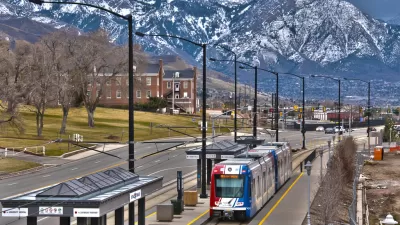Todd Litman
Todd Litman is the executive director of the Victoria Transport Policy Institute.
Contributed 447 posts
Todd Litman is founder and executive director of the Victoria Transport Policy Institute, an independent research organization dedicated to developing innovative solutions to transport problems. His work helps to expand the range of impacts and options considered in transportation decision-making, improve evaluation methods, and make specialized technical concepts accessible to a larger audience. His research is used worldwide in transport planning and policy analysis.
Mr. Litman has worked on numerous studies that evaluate transportation costs, benefits and innovations. He authored the Online TDM Encyclopedia, a comprehensive Internet resource for identifying and evaluating mobility management strategies; Transportation Cost and Benefit Analysis: Techniques, Estimates and Implications, a comprehensive study which provides cost and benefit information in an easy-to-apply format; and Parking Management Best Practices, the most comprehensive book available on management solutions to parking problems. Mr. Litman is a frequent speaker at conferences and workshops. His presentations range from technical and practical to humorous and inspirational. He is active in several professional organizations, including the Institute of Transportation Engineers and the Transportation Research Board (a section of U.S. National Academy of Sciences). He is a member of the Editorial Advisory Board of Transportation Research A, a professional journal.

New Musical Glamorizes Urban Planning
If/Then, a new Broadway musical, describes two possible lives of a dynamic, intelligent, glamorous, detail-oriented, and somewhat wonky urban planner. The character is based on Amanda Burden, who recently-retired as New York City's planning director.

Salt Lake Light Rail System Reduces Vehicle Traffic On Parallel Roadways
A new study finds that Salt Lake City's TRAX light-rail system significantly reduces traffic on parallel roadways. It estimates that a LRT line reduces daily from 44,000 (if it did not exist) to 22,300 (what actually occurs) on one arterial.
Paradox: Congestion May Signify Better Accessibility and Economic Productivity
Although transport planners consider traffic congestion economically harmful, economic productivity tends to increase with congestion and decline with increased road supply. This paradox can be explained by more nuanced analysis of accessibility.

Is Traffic Speed Compliance A Congestion Cost?
Conventional evaluation often exaggerates congestion costs by using baseline travel speeds which exceed speed limits. This assumes that traffic speed compliance is a congestion cost that justifies major infrastructure investments to alleviate.
California Updates Main Street Planning Guide
A newly revised guidebook by the California Department of Transportation describes how to plan and design highways and arterials that also serve as community commercial centers.

























